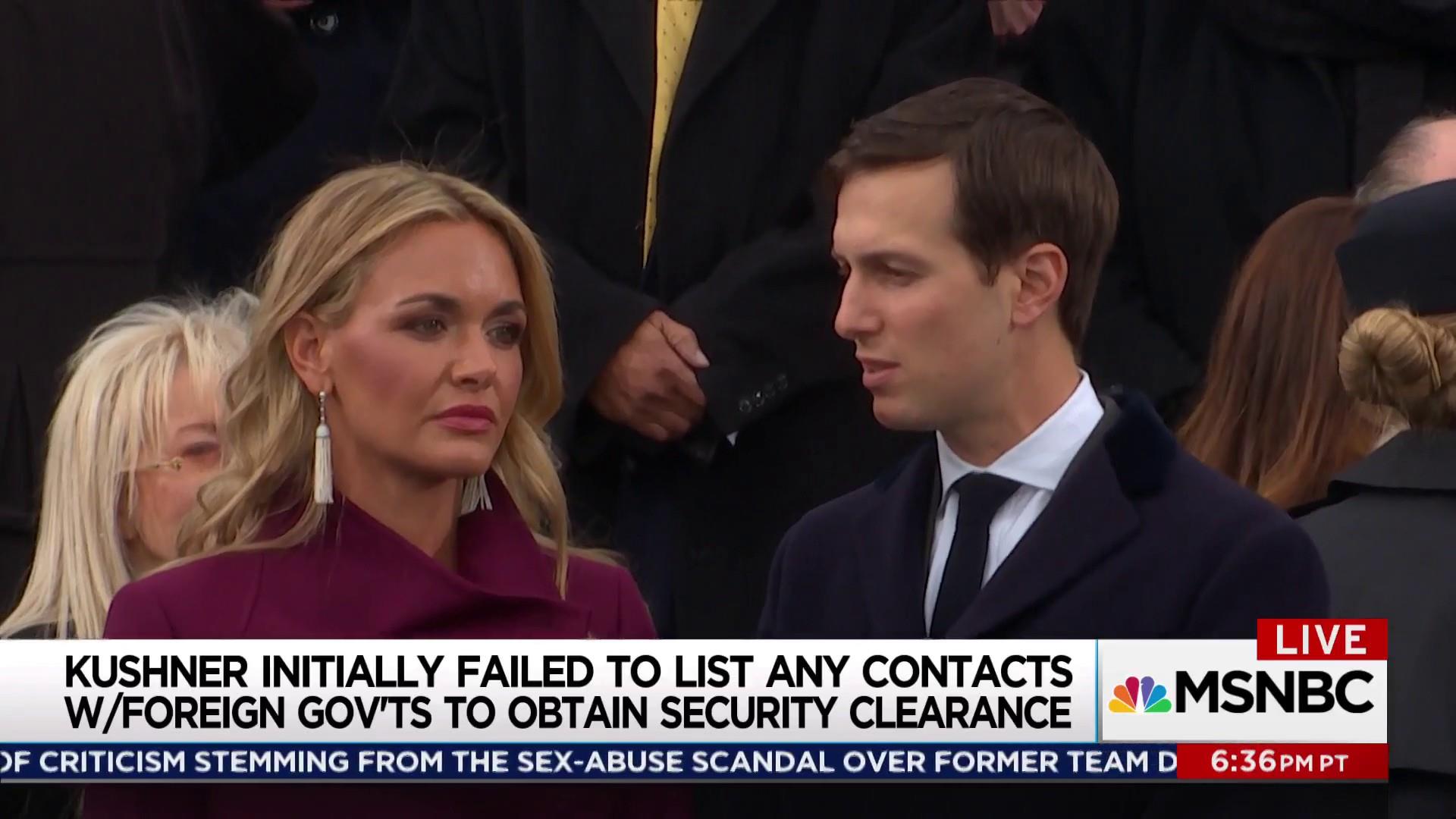Jared
Kushner—Risky Business in The White House
 We’re all going to be learning more about a guy named Carl
Kline, a former Pentagon official who was put in charge of personnel security
in the White House in 2017.
We’re all going to be learning more about a guy named Carl
Kline, a former Pentagon official who was put in charge of personnel security
in the White House in 2017.
He’s the guy who set aside all that might have been considered
troubling about Jared Kushner’s background and international financial
entanglements involving his family’s business to grant him a White House
security clearance.
NBC News was the
first to report about Kline, whose intervention in White House clearances has
resulted in granting the special certification to see secret government
information to more than 30 individuals.
Kline’s predecessor in the job had overruled intelligence agency reviews of White House clearance candidates only once in three years.
Kline’s predecessor in the job had overruled intelligence agency reviews of White House clearance candidates only once in three years.
It was only when the CIA reviewed a request to give Kushner yet more access to classified information that the Kline actions came to light.
The CIA took one look at the reviews of Kushner’s business entanglements and rejected the request for access to “sensitive compartmented information.”
NBC reported: “After reviewing the file, CIA officers who make
clearance decisions balked, two of the people familiar with the matter said.
One called over to the White House security division, wondering how Kushner got
even a top secret clearance, the sources said.”
Two sources who spoke on condition of anonymity because of the
sensitive nature of the information told NBC that the Trump White House
attracted many people with untraditional backgrounds who had complicated
financial and personal histories, some of which raised issues.
Kushner’s FBI background check identified questions about his family’s business, his foreign contacts, his foreign travel and meetings he had during the campaign, the sources said, declining to be more specific.
Kushner’s FBI background check identified questions about his family’s business, his foreign contacts, his foreign travel and meetings he had during the campaign, the sources said, declining to be more specific.
To gain access to “sensitive compartmented information,”
requires CIA authorization, which was withheld. That would mean Kushner lacks
access to key intelligence unless Trump decides to override the rules, which is
the president’s prerogative.
NBC News was unable to reach Carl Kline for comment. Kushner’s
lawyer, Abbe Lowell, had no comment.
Rep. Elijah Cummings (D-Md.), chairman of the House Oversight
and Reform Committee, said that the NBC News reporting raised questions he
hopes to answer as part of his investigation, announced this week,
into how the Trump administration has handled security clearances
The sources said they did not know whether Kline was in
communication with senior political White House officials.
Following an FBI investigation, the Kushner case went back to the White House office of personnel security, where a career adjudicator reviewed the FBI information, including questions about foreign influence and foreign business entanglements, the sources said.
The Washington Post, citing current and former U.S. officials familiar with intelligence reports on the matter, reported last February that officials in at least four countries, including the United Arab Emirates, China, Israel and Mexico, had privately discussed ways they could manipulate Kushner by taking advantage of his complex business arrangements, financial difficulties and lack of foreign policy experience.
Following an FBI investigation, the Kushner case went back to the White House office of personnel security, where a career adjudicator reviewed the FBI information, including questions about foreign influence and foreign business entanglements, the sources said.
The Washington Post, citing current and former U.S. officials familiar with intelligence reports on the matter, reported last February that officials in at least four countries, including the United Arab Emirates, China, Israel and Mexico, had privately discussed ways they could manipulate Kushner by taking advantage of his complex business arrangements, financial difficulties and lack of foreign policy experience.
On the basis of potential foreign influence, the adjudicator
deemed Kushner’s application “unfavorable” and handed it to a supervisor.
The supervisor agreed with the “unfavorable” determination and gave it to Kline, the head of the office at the time, who overruled the “unfavorable” determination and approved Kushner for “top secret” security clearance, the sources said.
The supervisor agreed with the “unfavorable” determination and gave it to Kline, the head of the office at the time, who overruled the “unfavorable” determination and approved Kushner for “top secret” security clearance, the sources said.
Sources also told NBC News career employees of the White House
office disagreed with other steps Kline took, including ceasing credit checks
on security clearance applicants.
This is not the way to run the railroad.